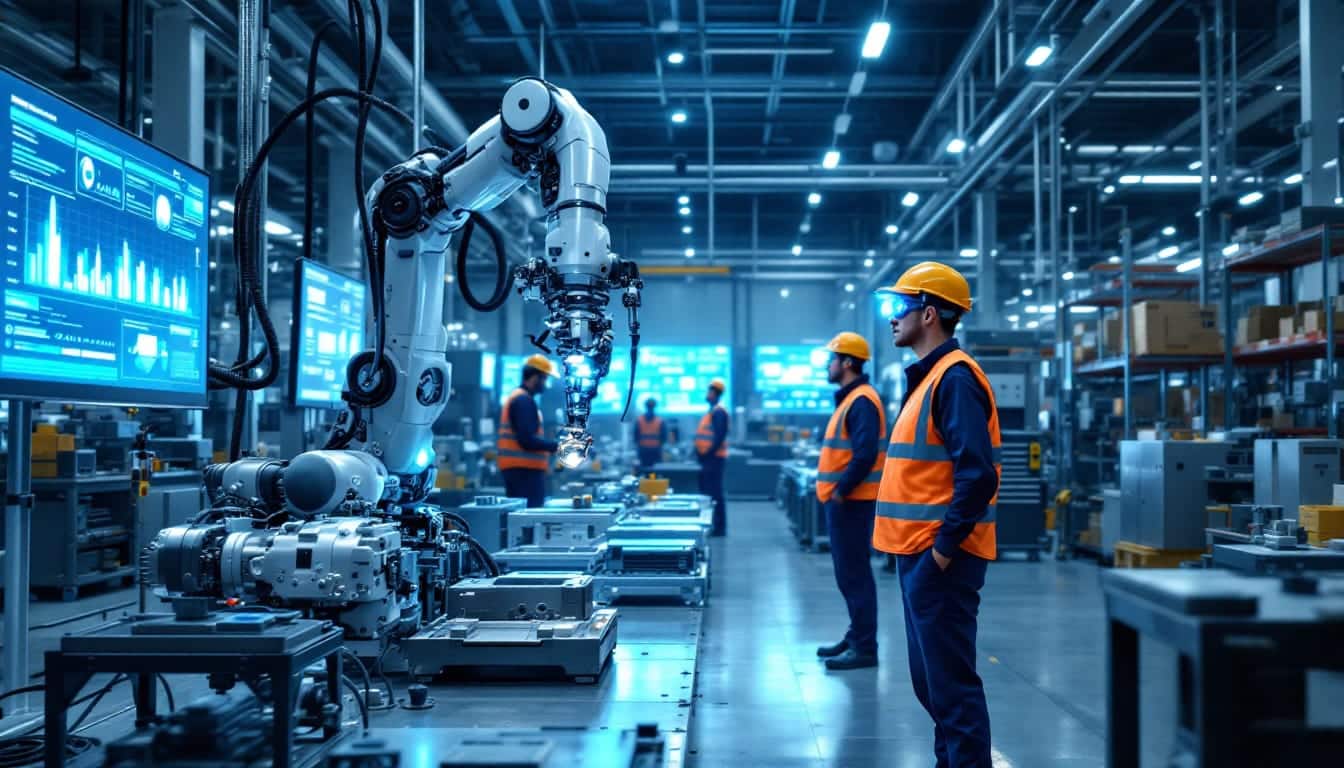Welcome to your customized digital universe.
Your online experience is our priority.
We are committed to protecting your personal data.
To ensure the quality of our cloud services, we use cookies and data. This allows us to monitor performance and prevent fraud and abuse. You have the option to choose your preferences to customize your browsing or limit the use of your information. Find out how we optimize your experience while respecting your privacy.

Table des matières
ToggleWhat is a manufacturing execution system?
Manufacturing execution systems (MES) play a crucial role in the link between production planning and operational control of factories. They allow for real-time management of manufacturing processes, ensuring effective coordination of human, material, and informational resources. An MES integrates various modules such as work order management, performance tracking, quality management, and product traceability. With these features, companies can optimize their operations, reduce costs, and improve the quality of finished products.
For example, the inauguration of the new factory in Spain by Septodont, specialized in dental products, perfectly illustrates the importance of MES in industrial expansion. By integrating a high-performing MES, Septodont was able to expand its production capacity while maintaining high-quality standards, as highlighted in the article Septodont expands its dental product production with the inauguration of a new factory in Spain.
What is the importance of MES systems in modern industry?
In the current context where competitiveness is increasingly fierce, MES systems have become essential for manufacturing companies. They not only allow for monitoring and controlling production operations but also for optimizing processes in real time. This optimization leads to better utilization of resources, a reduction in downtime, and continuous improvement in product quality. Furthermore, MES facilitate compliance with industrial and regulatory standards, which is essential for maintaining customer trust and avoiding penalties.
Additionally, faced with the instability of raw material markets, as described in the article A year marked by the instability of raw material markets, MES systems offer increased flexibility and responsiveness. They allow companies to quickly adjust their production processes according to fluctuations in costs and availability of materials, thus ensuring effective resource management and resilience against market uncertainties.
How are cloud technologies transforming MES systems?
The integration of cloud technologies into MES systems is revolutionizing the way production data is managed and analyzed. The cloud offers increased accessibility, allowing managers and operators to track production performance in real time from anywhere. This accessibility promotes rapid and informed decision-making, essential for maintaining competitiveness in the global market.
Moreover, the cloud allows for flexible scalability of IT resources, which is particularly advantageous for expanding companies. For example, the article on Haute-Savoie manufacturers seeking renewal (Discovering Haute-Savoie manufacturers in search of renewal) highlights how cloud technologies enable these companies to modernize their MES, reduce infrastructure costs, and improve their operational agility.
What are the current challenges in the MES market?
The MES market faces several challenges, including the complexity of integration with existing systems, the management of massive data, and cybersecurity. Integrating MES with ERP (Enterprise Resource Planning) and other information systems can be complex, requiring customized solutions and advanced technical expertise.
Furthermore, managing real-time data imposes high requirements for storing and processing information. Companies must invest in robust infrastructures capable of handling these data streams while ensuring their security. The article The smart pump market accelerates thanks to intelligent infrastructure and the integration of Industry 4.0 illustrates how the integration of advanced technologies presents opportunities but also significant challenges in terms of security and data management.
How does Industry 4.0 influence manufacturing execution systems?
Industry 4.0 is profoundly transforming manufacturing execution systems by introducing technologies such as the Internet of Things (IoT), artificial intelligence (AI), and data analytics. These technologies enable increased automation, improved connectivity, and data-driven decision-making based on precise and real-time information.
For instance, the integration of AI in MES allows for anticipating failures, optimizing maintenance schedules, and improving product quality through automated checks. Similarly, IoT facilitates data collection from various machines and devices, providing complete visibility into the production process. The article Discovering Haute-Savoie manufacturers in search of renewal shows how the adoption of Industry 4.0 enables companies to modernize their MES and fully leverage them to enhance their efficiency and competitiveness.
What are the future trends for MES systems?
The future trends in the field of MES systems are oriented towards deeper integration of emerging technologies and increased customization of solutions. The growing adoption of artificial intelligence and machine learning will enable MES to become even more proactive, anticipating production needs and optimizing processes autonomously.
Augmented reality (AR) and virtual reality (VR) are also set to transform operator training and maintenance of industrial equipment. These technologies will provide interactive tools to enhance productivity and reduce human errors. Furthermore, the emphasis on sustainability and energy efficiency will influence the development of MES, with a closer integration of ecological practices into manufacturing processes.
The article Paul Szersnovicz, the new guardian of the Hine cognac know-how illustrates how continuous innovation in MES systems allows for the preservation of traditional know-how while integrating the latest technological advancements to meet contemporary demands.




